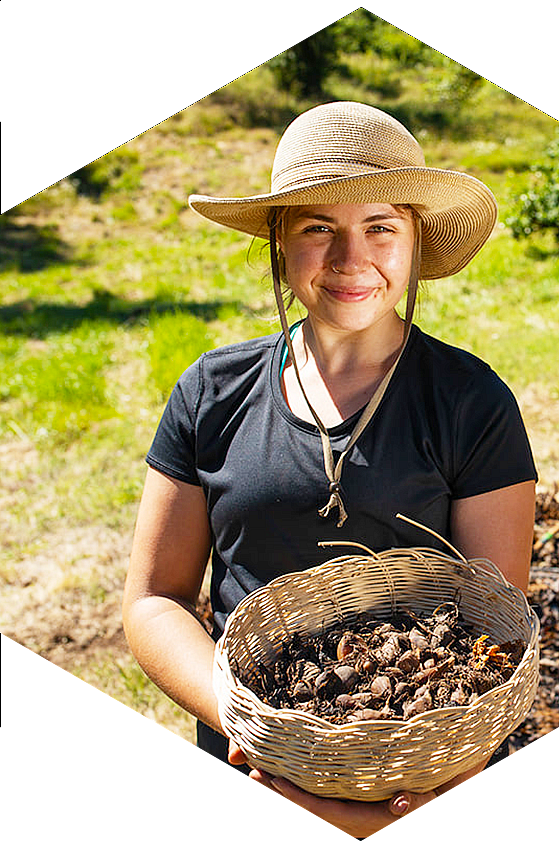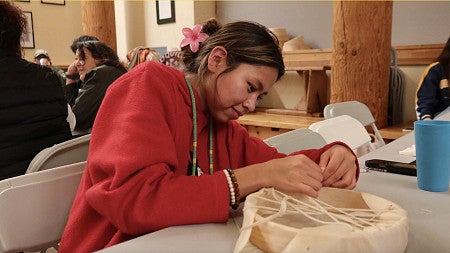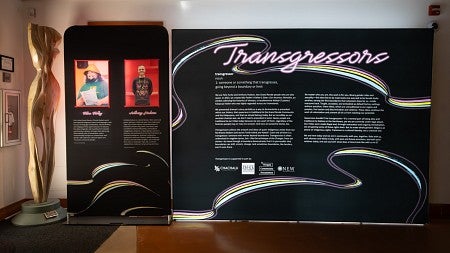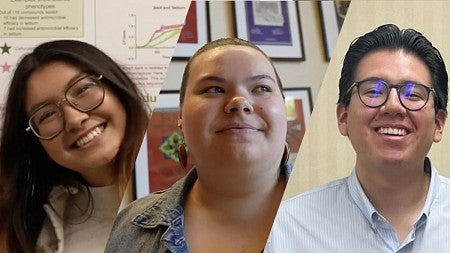
Click here to hear this greeting in Chinuk Wawa, the intertribal universal language of the Pacific Northwest
Spring Term 2026 Course Offerings
Please reach out to NAIS Interim Director, Lana Lopesi, with any questions or to set up an advising session.
Course | Instructor | Group |
|---|---|---|
ICH 103: 1st Yr Ichishki'in | Anderson | Group 1 | Language |
ICH 203: 2st Yr Ichishki'in | Anderson | Group 1 | Language |
ENG 104Z: Introduction to Fiction, Indigenous Horror | Fowler | Group 3 |
ES 258: Intro to Pacific Islander Studies | Lopesi | Group 2 |
ANTH 329: Immigration and Farmworkers | Resendiz |
|
ES 4/510: Work with Oregon Tribes (Major Requirement |
| Group 2 | UD Elective | Major Requirement |
EDST 456: Decolonization and Education | Jacob | Group 1 | UD Elective |
GLBL 4/520: Global Community Development | Hindery |
|
ES 407/507: Indigenous Horrors | Morrill | Group 3 | UD Elective |
Winter Term 2026 Course Offerings
Please reach out to NAIS Interim Director, Lana Lopesi, with any questions or to set up an advising session.
Course | Instructor | Group |
|---|---|---|
ICH 102: 1st Yr Ichishki'in | Parham | Group 1 | Language |
ICH 202: 2st Yr Ichishki'in | Parham | Group 1 | Language |
ENVS 203: Intro to Environmental Studies | Cordes | ASYNC WEB | Group 1 |
ENG 244: Intro Native Amer Literature | Fowler | Group 3 |
DSCI 399: Indigenous Data Sovereignty | Cordes | Group 3 | UD |
ANTH 320: Native North Americans | Younker | Group 1 | UD Elective |
ANTH 344: Oregon Archaeology | McDonough | Group 1 | UD Elective |
ANTH 351: Decolonizing Archaeology | Sanchez | Group 1 | UD Elective |
ANTH 399: California Archaeology | Sanchez | Group 1 | UD Elective |
ANTH 343: Pacific Island Archaeology | Fitzpatrick | ASYNC WEB | Group 1 | UD Elective | Related Class |
ES 470/570: Native American and Indigenous Feminism | Lopesi | Group 2 | UD Elective | Major Requirement |
ENVS 411: Top Indig Oil Justices | Madigar | Group 3 | UD Elective |
ANTH 456: Peopling of the Americas | McDonough | Group 1 | UD Elective | Related Class |
EDST 617: Sapsik'walá Educ Seminar | Sabzalian | Grad Seminar | Not open to non Sapsik'walá students |
LING 410: 3rd Yr Ichiski'inr | Anderson | Group 1 | Language |
Major Requirements
The NAIS interdisciplinary major has two tracks: a conventional track and a language track. Both tracks require a minimum of 56 credits, at least 28 of which must be taken in residence at the UO, the same core coursework and upper division requirements, and one year of Indigenous language instruction. The language track includes a second year of Indigenous language instruction.
Core courses for the NAIS major include: ES 256: Intro to Native American Studies, ES 321: Indigenous Peoples of Oregon, ES 468: NAIS Research Methods and Ethics, and ES 470: Native American and Indigenous Feminisims.
All courses counting toward the major must be taken for letter grades and completed with grades of C or higher.
At least one upper-division course must be taken from Group 3: Literature, Media, and the Arts.
Minor Requirements
The Native American and Indigenous Studies minor compliments numerous other fields of study and provides access to ways of knowing and living that are part of the heritage and future of the State of Oregon and the United States.
The interdisciplinary minor requires a minimum of 28 credits, with at least 16 of those being upper-division credits. All courses counting toward the minor must be taken for letter grades and completed with grades of C or higher.
Students must fulfill distribution requirements, taking at least one class each from the following groups:
Group I: Culture, Language, and Education
Group II: Law, Policy, Governance, and History
Group III: Literature, Media, and the Arts
Native American and Indigenous Studies Advisory Council

Resources and Programs for Native Students
- Many Nations Longhouse
- Native American Student Union (NASU)
- Native American and Indigenous Studies Academic Residential Community (NAIS ARC)
- UO/Otago Indigenous Studies Exchange
- Resident Tuition for Citizens of Oregon Tribes and those with Historic Ties to Oregon
- Home Flight Undergraduate Program
- Future Stewards Graduate Fellowship
- Duck Excellence Scholarship
- NAIS Undergraduate Research Award
- NAIS Research Guide
- Two Spirit/Indigiqueer Resource Page
NAIS Academic Partners, Programs, and Units
- Sapsik'ʷałá Teacher Education Program
- Northwest Indigenous Language Institute
- Pacific Northwest Tribal Climate Change Project
- Honoring Tribal Legacies
- Indigenous Pre-College Academy (IPCA)
- Lane Community College Longhouse
- Chinuk Wawa Program at Lane Community College
- Other Resources and Native Faculty/Staff Contacts
- Honoring Native Peoples and Lands
- Museum of Natural and Cultural History

Land Acknowledgment
The University of Oregon is located on Kalapuya ilihi, the traditional Indigenous homeland of the Kalapuya people. Following treaties between 1851 and 1855, Kalapuya people were dispossessed of their indigenous homeland by the United States government and forcibly removed to the Coast Reservation in Western Oregon. Today, Kalapuya descendants are primarily citizens of the Confederated Tribes of Grand Ronde and the Confederated Tribes of Siletz Indians, and they continue to make important contributions to their communities, to the UO, to the lands now known as Oregon, and to the world.
In following the Indigenous protocol of acknowledging the original people of the land we occupy, we also extend our respect to the nine federally recognized Indigenous nations of Oregon: the Burns Paiute Tribe, the Confederated Tribes of the Coos, Lower Umpqua and Siuslaw Indians, the Confederated Tribes of Grand Ronde, the Confederated Tribes of Siletz Indians, the Confederated Tribes of the Umatilla Indian Reservation, the Confederated Tribes of Warm Springs, the Coquille Indian Tribe, the Cow Creek Band of Umpqua Tribe of Indians, and the Klamath Tribes.
We also express our respect to the many more tribes who have ancestral connections to this territory and to all other displaced Indigenous peoples who call Oregon home.




